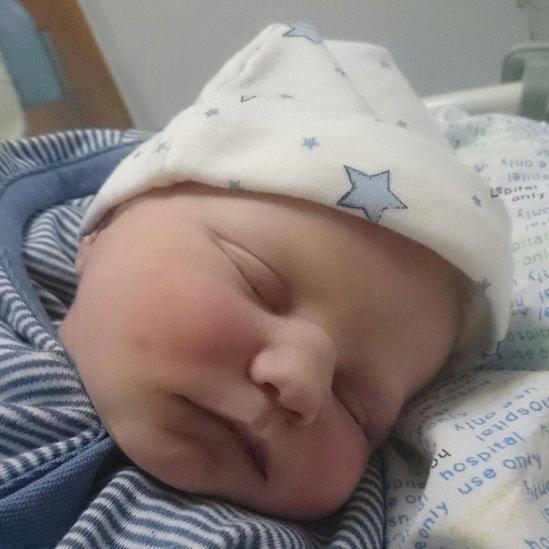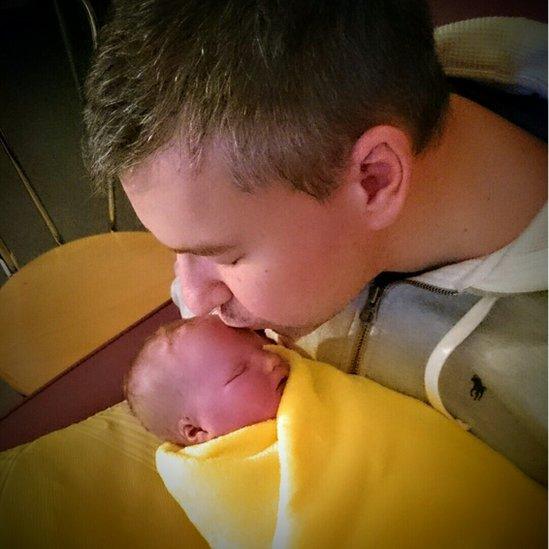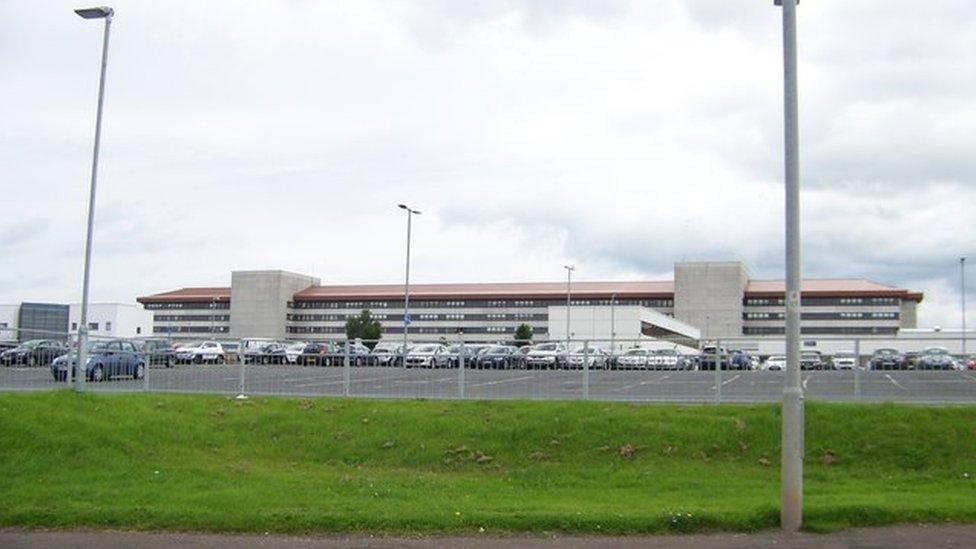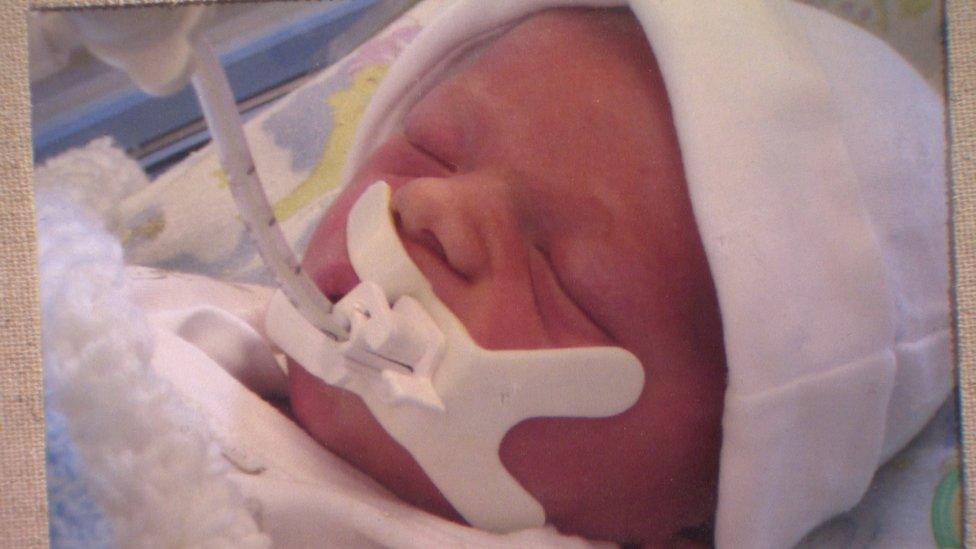Crosshouse Hospital baby deaths review announced by minister
- Published
June and Fraser Morton believe hospital staff were overworked in the lead-up to their son Lucas being born
The Scottish government has ordered a review of care at Crosshouse Hospital in Kilmarnock following a BBC Scotland investigation.
It comes after the BBC revealed that there have been six so-called "unnecessary" deaths of babies at the hospital since 2008.
Ayrshire and Arran Health Board has apologised to the bereaved families.
Health Secretary Shona Robison said a review of the hospital would be carried out by Healthcare Improvement Scotland.
Ms Robison said she would be happy to discuss the findings of the review with the families involved.
'Further assurance'
She added: "Any death is a tragedy for the family involved, and what is important is that I get assurance that everything that should have been done in Ayrshire and Arran has been done.
"They have obviously had an internal review with external support, but I wanted further assurance and that is why I have asked Healthcare Improvement Scotland to go in to look at those cases and to report to me as quickly as possible."
The bereaved families include June and Fraser Morton from Kilmarnock, who had called for a public inquiry into the deaths.
Their son Lucas died at the hospital last November after a series of failings by hospital staff, who had failed to diagnose pre-eclampsia and did not properly monitor the baby's heartbeat during childbirth.
They also failed to alert senior members of staff despite being unable to hear the baby's heartbeat for 35 minutes.

Baby Lucas Morton died in November 2015 at Crosshouse Hospital
The health board apologised to Mrs Morton for "the management offered to you in the later weeks of your pregnancy which almost certainly failed to identify complications that contributed to Lucas's very tragic and unnecessary death".
"Unnecessary" or "avoidable" deaths are referred to as those where harm was caused to a healthy baby during childbirth - usually resulting in them being deprived of oxygen.
But although the health board referred to it as a "severe" adverse event, it did not carry out a full serious adverse event review - which is common practice - and would have meant that redacted details would have been published on its website.

Fraser Morton with his son Lucas
Mr Morton told BBC Scotland that he believed the hospital had been "understaffed and overworked" at the time of his son's death.
He added: "They didn't have the training knowledge and experience, and I believe that comes back to management issues.
"If mistakes had not been made, the difference is quite simple. Lucas would have been here. It would have been his first birthday. The independent reports substantiate that and say earlier intervention would have led to a different result."

Six cases of so-called "avoidable deaths" have taken place at Crosshouse Hospital over the past eight years
The health board later reported Lucas's death to the Crown Office - despite Crown Office guidelines which state: "The doctor with the most detailed knowledge of the circumstances of the death should report it."
The BBC has learned that Lucas's death and the circumstances surrounding it were not unique, with another family - Denise and Steven Campbell - joining the Mortons in calling for a public inquiry.
Their son, Joseph, died during childbirth at Crosshouse Hospital four years ago. They said a consultant had told them that things should have been done differently, especially in relation to monitoring Joseph's heartbeat.
Documents show that prior to 2012 there were a further four "unnecessary" deaths of babies. Reports into some of the deaths refer to failings in monitoring of their heartbeat (CTG).
One such report published in 2012 concluded: "There appears to be a failure of care in several areas; failure of an on-call consultant to attend, failure in communication of information, lack of interpretation of the CTG trace and vital signs."

Joseph Campbell died at Crosshouse Hospital four years ago
Correspondence has also referred to failures to enforce mandatory training on foetal heartbeat monitoring because of staff shortages.
A letter from the health board in June states: "Unfortunately midwifery staff do not have time within their working practices to attend CTG meetings.
"With the challenges of shift working and constraints of the European working time directive as well as a significant problem with unfilled posts, group teaching is harder to provide.
"The re-introduction of multi-disciplinary CTG training is very important and at present we cannot make this mandatory due to our midwifery staffing levels."
'Investigated thoroughly'
NHS Ayrshire and Arran told BBC Scotland it ensures all the appropriate staff do have training on foetal monitoring.
Dr Alison Graham, the health board's executive medical director, said: "I would take this opportunity again to apologise to both families for any failings they experienced during their time with us.
"NHS Ayrshire and Arran is committed to ensuring that, if there is any possibility that there has been avoidable harm, this is investigated thoroughly and that we are open, honest and transparent about this."
The families' call for a inquiry follows an investigation into the "lethal mix" of failures at a Cumbrian hospital which led to the unnecessary deaths of 11 babies and one mother
The inquiry into the University Hospitals of Morecambe Bay NHS Trust found 20 major failures from 2004 to 2013 at Furness General Hospital.